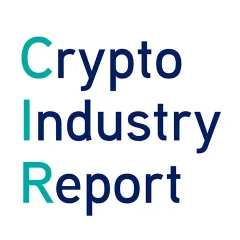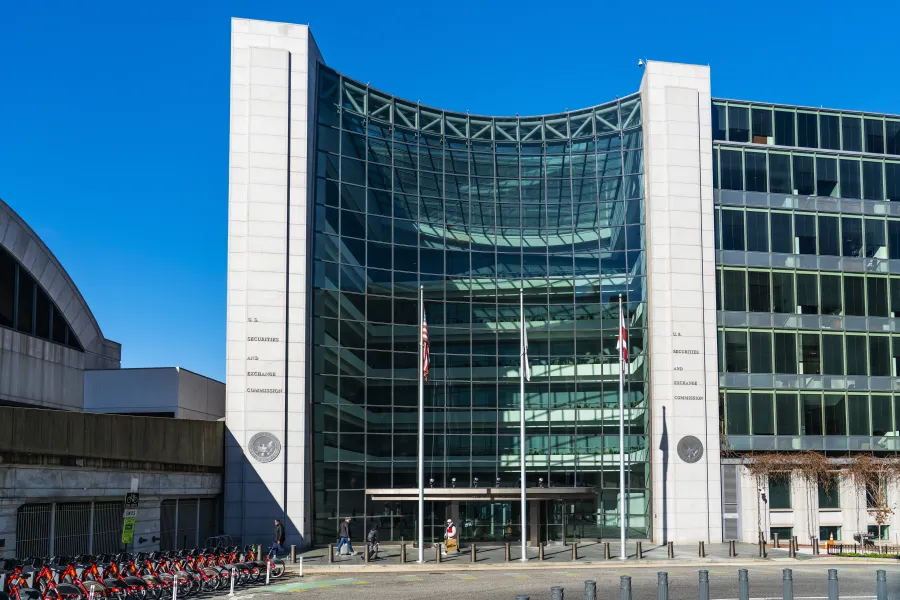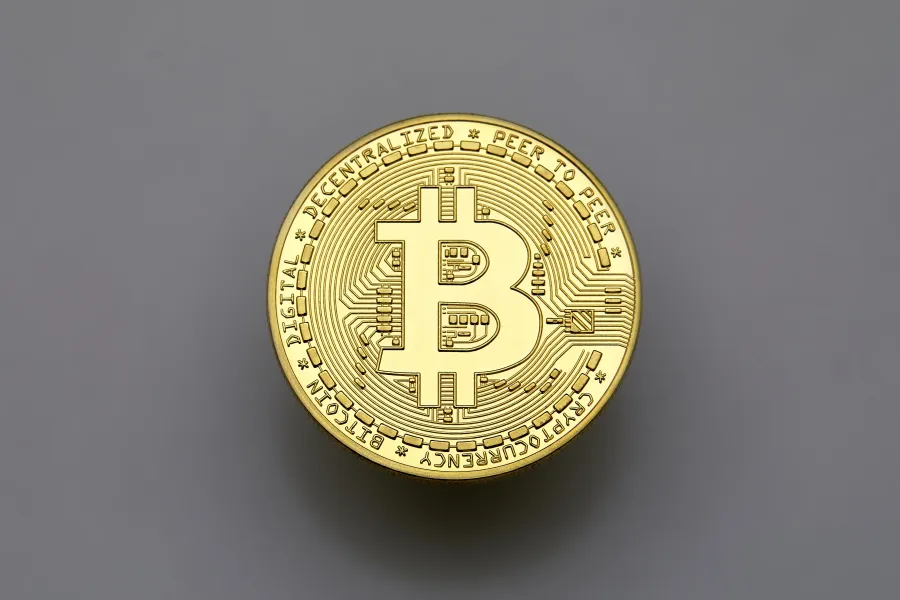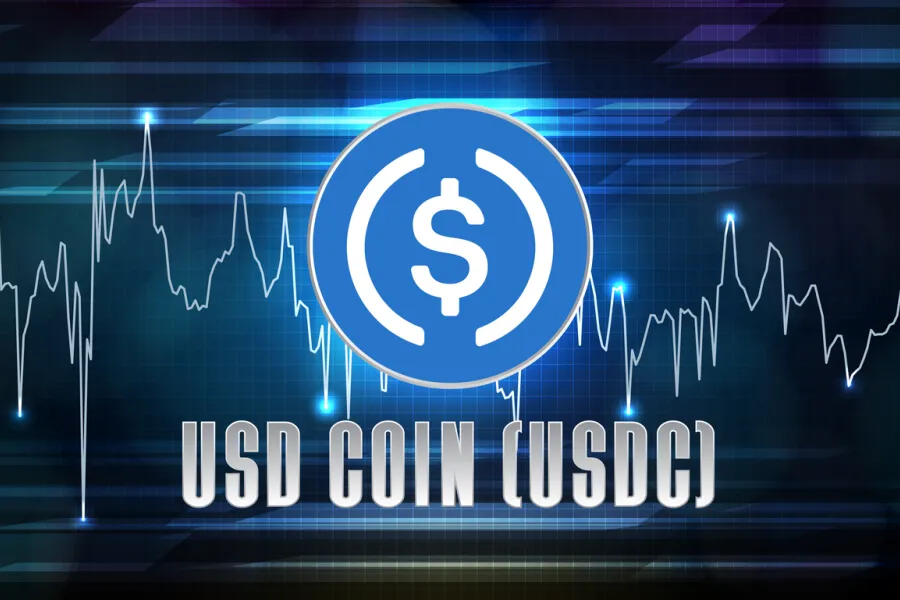Mere FUD or Binance in real trouble?
This week, our blockchain experts assessed the following topics:
- Mere FUD or Binance in real trouble?
- Peak FUD is hitting the crypto markets in yet another bear cycle round
- CBDC – never a week has gone to waste
- Africa: A continent primed to go all in on cryptocurrencies?
Our bi-weekly Crypto Industry Report provides you with valuable information on the global crypto industry – picked and analysed by our blockchain experts.
Mere FUD or Binance in real trouble?
As those affected by the collapse of FTX rejoice over the recent arrest of Sam Bankman-Fried (SBF), the CEO of Binance is currently dealing with fear, uncertainty, and doubt (FUD) targeted at his cryptocurrency exchange. In a tweet, CZ asked the community to ignore the FUD. “FUD helps us grow. [...]. There has hardly been a week going by without some FUD. We learned the ability to ignore them and keep building,” he said.
The problems at Binance’s doorstep have resulted from the proof of reserves it rushed to publish to reassure its customers that their money is SAFU following the FTX collapse. A report by financial and accounting experts that the Wall Street Journal consulted has raised red flags regarding the transparency of these proof-of-reserves. The red flags that have been highlighted include the fact that Binance has not disclosed its parent company and its liabilities as the latter are not on-chain.
Binance withdrew $2.7 billion from its proof-of-reserves wallet further raising concerns. According to CZ, if an exchange moves “large amounts of crypto before or after they demonstrate their wallet addresses, it is a clear sign of problems. Stay away.” Ironically, his crypto exchange appears to be doing exactly what he previously warned people about. The CEO has defended this action with the claim that the funds the exchange has moved are part of its proof-of-reserve audits.
As a result of these concerns, Binance experienced a rise in withdrawals on December 12, 2022. According to blockchain analytics platform Nansen, net flows (the difference between money coming in and money going out) reached around $3 billion (ETH & ERC20 tokens only), in 24 hours. This indicates that crypto users are becoming increasingly cautious about the crypto assets held in centralised crypto exchanges after the failure of FTX.
Furthermore, news of potential criminal charges against CZ and other Binance executives has been circulating. According to a Reuters article, U.S. prosecutors are considering administering money laundering charges against Binance executives. Moreover, the Department of Justice (DOJ) has reportedly discussed possible plea deals with Binance lawyers signalling legal troubles at the exchange.
Part of the fear over the state of affairs at Binance may have also originated from a tweet revealing that Tron’s CEO, Justin Sun, withdrew $50 million from the exchange. Sun later deposited $100 million in USDC into the exchange to calm rising fears over Binance being in trouble. According to CZ, the deposit is part of efforts to deploy BUSD on Tron.
To add fuel to the fire, Binance’s official Twitter account publicly posted a customer’s conversation with a customer support agent on Twitter. While this appears to have been naively done in the process of solving/explaining a customer issue, it didn’t present Binance in the best light and might even have legal consequences.
Meanwhile, Binance Labs, the VC arm of Binance, is planning to lead a funding round for a web3 security firm called GoPlus Security. The firm hasn’t divulged how much it will invest in GoPlus Security. Curiously, Binance raised more funds for projects in 2022 than in 2021, when the crypto market was flourishing.
The fact that Binance is now in the hot seat after showing signs of strength during the FTX collapse is an interesting plot twist. However, some people were not so easily convinced by the exchange’s efforts to make it seem like everything was all roses in their court. In fact, some think CZ is using SBF’s playbook by manipulating people into trusting Binance. That said, the talks of a recovery fund, the role Binance played in FTX’s downfall, and the unsatisfactory proof-of-reserves audit have undoubtedly raised many eyebrows. However, only time can tell whether concerns about the financial health of Binance are justified or not.
Peak FUD is hitting the crypto markets in yet another bear cycle round
FUD is at its peak as the crypto bear market persists. This is all thanks to the naysayers taking advantage of the current market environment to criticise cryptocurrencies. Among the loudest critics are the European Central Bank’s director general of the market infrastructure and payments division Ulrich Bindseil and Jürgen Schaff, an adviser in the same division. The two have co-authored an article with a rather dramatic title: “Bitcoin’s last stand.'' They claim cryptocurrencies are on the “road to irrelevance” and shouldn’t be legitimised.
A board member of the European Central Bank (ECB), Fabio Panetta, has maintained the string of criticism saying cryptocurrencies that use too much energy should be banned. He also believes that the volatility and inefficiency of cryptocurrencies make them unsuitable for regular payments.
Criticisms aside, the European Union (EU) is set to take solid action through plans to make crypto companies reveal the holdings of their users to tax authorities. The body is also figuring out how it can enforce these measures on crypto exchanges and wallet providers outside its jurisdiction.
Several regulators are taking a stern stand against cryptocurrencies following FTX’s demise. In the UK, guidelines to restrict people from purchasing and selling digital assets in the UK market from abroad are being finalised. The Financial Conduct Authority (FCA) will also monitor advertisements and operations of crypto companies under the new legislation.
Thailand’s Securities and Exchange Commission (SEC) is among the regulators that are planning to tighten crypto regulations after the FTX collapse. The country is working on stricter crypto asset rules that will “mirror the global market.”
Furthermore, the Financial Stability Board (FSB), a global organisation that advises on better banking and financial practices, says it will start introducing global crypto standards next year. And the U.S. sent 5,304 requests to Coinbase for customer information over the period starting from October 1, 2021, to September 30, 2022. Most of the requested information was in connection to criminal enforcement matters, while the rest was of a civil or administrative nature.
CBDC – never a week has gone to waste
As regulators work on stringent crypto rules on the one hand, they are accelerating their work on central bank digital currencies (CBDCs) on the other. For example, the Bank of Spain plans to roll out an experimentation programme to help it understand wholesale CBDCs better. As a result, the bank has asked organisations interested in joining this initiative to submit proposals by January 31, 2023.
In India, the reserve bank has launched wholesale and retail CBDC pilots. The retail pilot has components that leverage blockchain technology. The Reserve Bank of India (RBI) will involve eight banks in its retail pilot project.
England is making milestones of its own regarding CBDCs. The Bank of England (BOE) has published a request for a proposal for a sample proof-of-concept wallet that can store a CBDC. Suppliers that submit proposals for this work are expected to deliver a mobile wallet app for Android and iOS and a wallet website, among other things.
By the end of December, the BOE will release a consultation paper on the digital pound CBDC, says Jeremy Hunt, the UK Chancellor of the Exchequer. The bank will also publish a working paper detailing the technology it will consider in the development of the CBDC.
Furthermore, the ECB has announced that it’s running a digital euro prototyping exercise.” The exercise aims to help market participants to create front-end prototypes that can be incorporated with ECB's back-end infrastructure.
Africa: A continent primed to go all in on cryptocurrencies?
On the African front, the Central Bank of Nigeria (CBN) has capped ATM cash withdrawals at $45 per day to promote a cashless economy. The move should encourage users to use eNaira and other cashless alternatives like mobile and internet banking apps. CBN rolled out the eNaira in October last year. So far, the CBDC has only achieved less than 0.5% adoption. Before the launch of the eNaira, the CBN banned banks from facilitating transactions for crypto companies. Despite these two moves, crypto adoption in the country is high ranging from 27% to over 50%.
According to a Chainanalysis report, cryptocurrencies are quietly thriving in Sub-Saharan Africa. Crypto adoption in this region is driven by remittances, retail and commercial transactions, and a genuine need for digital assets in response to failing local currencies and moves like the one that the Nigerian central bank just announced.
Thus, the demand for cryptocurrencies has seen digital payments platform Strike launch instant remittances in partnership with an African payments company called Bitnob. Strike is built on the Lightning Network (LN), and its Send Globally service will initially be available in Nigeria, Kenya, and Ghana. The remittance service is powered by LN.
Bitcoin mining is also making its way into Africa through several companies. One of them is Gridless, a firm backed by Block, a payment company established by Twitter’s former CEO, Jack Dorsey. “Gridless designs, builds, and operates Bitcoin mining sites alongside small-scale renewable energy producers in rural Africa where excess energy is not utilised.”
In response to the growing crypto adoption in Africa, IMF is calling for better crypto regulations on the continent to minimise risk and prevent illegal activities carried out using crypto assets. The international body has already been critical of El Salvador and the country’s Bitcoin plans and might now also have some concerns about the progressive adoption of cryptocurrencies in Africa.
Share post

Auch interessant

To be continued: SEC pushes back at Coinbase
SEC pushes back against Coinbase's claim of no regulatory jurisdiction, stating the crypto exchange knowingly violated securities laws. Meanwhile, Gemini, owned by the Winklevoss twins, files a lawsuit against Digital Currency Group and CEO Barry Silbert alleging fraud and deception following the collapse of a lending venture. The Bank for International Settlements survey reveals that 93% of central banks are working on Central Bank Digital Currencies (CBDCs) which are seen as potential geopolitical policy tools and a challenge to the dollar's dominance. The race for a Bitcoin ETF intensifies, with BlackRock refiling its application featuring Coinbase as the market surveillance partner, as the Grayscale Bitcoin Trust's discount to net asset value narrows, potentially indicating the transformation into a proper ETF.

BlackRock fever: The ETF filing spree and institutional appetite
BlackRock filed for a Bitcoin ETF with the SEC, inspiring similar applications from firms like WisdomTree, Invesco, and Fidelity, and boosting Bitcoin's value. Traditional finance institutions such as Fidelity and Nasdaq are showing increased interest in crypto, with moves towards exchange and custody services. The defunct crypto exchange FTX, under new CEO John Ray III, is planning a potential revival after recovering significant assets. Meanwhile, the IMF is developing a global CBDC platform for cross-border transactions and DAI, a major stablecoin, is diversifying its backing from USDC to include real-world assets.

SWIFT explores blockchain interoperability
SWIFT has partnered with Chainlink to experiment with leveraging its infrastructure for transferring tokenized value across blockchain networks. The trials will address interoperability, regulatory challenges, and operational drawbacks for financial institutions in a blockchain environment. Chainlink will provide connectivity between private and public blockchains. SWIFT's findings will be published later this year.

China wants an Internet 3.0, while Hong Kong gears up for crypto trading launch
China is striving for advancement in Internet 3.0 technologies, with Beijing's white paper outlining plans to invest in the development of the metaverse and Web3 tech such as non-fungible tokens, but not cryptocurrencies due to the country's previous ban. Meanwhile, Hong Kong is launching its new crypto trading regulations, allowing retail investors to participate from June 1, 2023, with exchanges like Huobi Hong Kong beginning to offer spot trading to retail and institutional clients. Furthermore, the Cybersecurity and Technology Crime Bureau of the Hong Kong Police Force is launching a metaverse platform, 'CyberDefender', to educate the public about potential threats and crime prevention in the metaverse.

BRC-20: Innovating on Bitcoin is the new cool
A new Bitcoin “token standard” called BRC-20 is the hottest thing right now in the crypto space. It was introduced in March 2023 by a pseudonymous person called Domo. Bitcoin Request for Comment 20 (BRC-20) is an experiment that brings fungible tokens to the Bitcoin blockchain using the Ordinals protocol. Ordinals rely on ordinal theory, enabling the identification and tracking of individual satoshis within Bitcoin's existing supply, while also allowing them to be inscribed (associated) with data. Through this technique, satoshis (sats) are given ordinal numbers starting with zero. Anyone can add a script file to a sat to create and transfer a BRC-20 token on the Bitcoin blockchain. BRC-20 tokens are created using three functions: deploy, mint, and transfer.

US versus EU: Giants fighting for regulatory clarity
It is official now: The European Parliament voted overwhelmingly in favour of Markets in Crypto Assets (MiCA), legislation that will guide the crypto sector in all 27 European Union member states. 517 parliament members voted for it, while 38 voted against it. This approval makes Europe the first continent with comprehensive rules for cryptocurrencies. Also, it means that all EU member states will have unified crypto regulations. So, if a crypto business is approved in one EU member country, it could easily expand operations to another member state. The EU’s milestone was lauded by Binance as well as Kraken and Coinbase.

Ethereum: Another milestone reached with the Shanghai Update
On April 12, 2023, Ethereum successfully executed the planned Shanghai update also known as Shapella. The upgrade allows validators to unstake their staked ETH and withdraw their rewards, as well as staked ether if chosen. Now that another level of uncertainty has waned for the biggest smart contract blockchain, this new feature could attract more investors to stake their ether.

CFTC versus Binance:
Clash of the titans
The world’s leading crypto exchange by volume, Binance, alongside its CEO, Changpeng Zhao, and ex-Chief Compliance Officer, Samuel Lim, are being sued by the US Commodity Futures Trading Commission (CFTC).

Stablecoin USDC briefly lost its
peg. What do we learn from this?
One of the top stablecoins by market cap, USD Coin (USDC), de-pegged briefly from the US dollar on March 11 following the collapse of Silicon Valley Bank (SVB). Circle, the stablecoin’s issuer, held $3.3 billion in USDC reserves with the bank, which caused panic as investors rushed to withdraw their funds, assuming USDC could implode because of insufficient backing. However, the amount represented less than 8% of the stablecoin’s reserves.

Ethereum Shanghai upgrade pushed to April: Will there be too much selling pressure?
Ethereum stakers have been eagerly awaiting the Shanghai upgrade, which will enable them to withdraw their staked ether. Stakers’ funds have been locked since Ethereum introduced the proof-of-stake Beacon Chain in December 2020. The upgrade was originally slated to take place sometime in March but was pushed by about two weeks to April during a recent execution layer meeting.